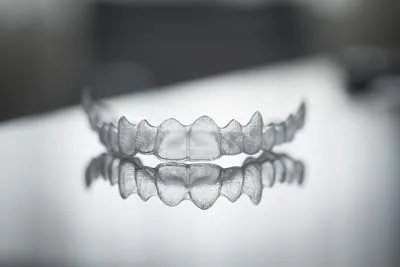
When it comes to straightening your teeth, two of the most popular orthodontic treatments are traditional braces and modern clear aligners. While both treatment options can create a healthy, beautiful smile, there are several differences in how they work, their advantages, and the kind of results they deliver. For many patients—especially those with more complex alignment issues—braces remain the most reliable and effective choice for straightening the smile.
How Traditional Braces Work

Because they are fixed in place and always working, braces can treat a wide range of orthodontic concerns, including:
- Severe crowding or spacing
- Significant bite misalignments (overbite, underbite, crossbite)
- Rotated or tilted teeth
- Complex tooth movement that clear aligners may struggle to achieve
The Advantages of Braces
While clear aligners have grown in popularity for their discreet appearance, traditional braces still offer several advantages:
- Treatment Power – Braces can handle more complicated cases, making them a dependable option for patients with significant orthodontic needs.
- No Compliance Worries – Because braces are fixed to your teeth, you don’t have to remember to wear them 20–22 hours a day like clear aligners. Your treatment is always working—even if you forget about it.
- Durability – Today’s braces are smaller, smoother, and more comfortable than ever, built to withstand daily wear without cracking or warping.
- Consistent Results – With regular adjustments from your dental team, braces offer predictable progress and well-controlled tooth movement.
Clear Aligners: A Quick Overview

However, their success depends heavily on patient compliance—if you’re not wearing them as directed by your dentist, treatment time can increase and results may be less predictable. Clear aligners are also limited in their ability to correct severe or complex alignment problems.
Which Orthodontic Treatment is Right For You?
The best way to determine if braces or clear aligners are right for you is to schedule a consultation with your orthodontic provider. If your case is mild and you’re committed to wearing your aligners as directed, clear aligners may be a convenient solution. But if your goal is the most powerful, versatile, and dependable treatment—especially for more advanced orthodontic challenges—braces remain the gold standard.
Your smile is an investment that lasts a lifetime. Choosing the right orthodontic treatment now ensures you’ll enjoy the benefits of a healthy, confident smile for years to come. Schedule a consult with your dentist to receive personalized guidance and identify the right orthodontic treatment plan for you!


